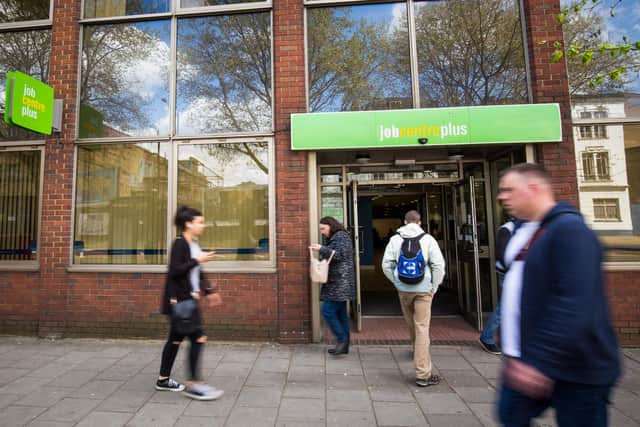UK sectors reporting output growth hits six-month low amid labour shortages
Nine of the 14 UK sectors monitored by Bank of Scotland’s latest UK Recovery Tracker saw output rise last month, down from 12 in July and the lowest since February when the UK was still in lockdown.
Labour shortages and supply chain disruption caused the output of UK transport (42.9) businesses, chemicals (45) and metals and mining (47.9) manufacturers to each fall for the first time in six months. A reading above 50 signals output is rising, while a reading below 50 indicates contraction.
Advertisement
Hide AdAdvertisement
Hide AdThe output of transport firms was hardest hit by recruitment challenges, and firms said their ability to complete orders was significantly reduced by a UK-wide shortage of haulage drivers.


The chemicals and metals and mining sectors also saw a contraction in output, both experiencing longer supplier delays compounding the impact of raw materials shortages and supply chain disruption in overseas markets.
Overall, the haulage driver shortage combined with global supply issues caused UK manufacturing sector lead times to lengthen to the greatest extent since April 2020.
However, the number of UK sectors that recorded stronger output growth month on month increased to five from four during August due to the strong performance of consumer-facing services businesses.


The output index for tourism and recreation (61.7 in August versus 55.3 in July) firms and food and drink manufacturers (53.7 in August as opposed to 45.6 in July) rose most sharply month on month.
Tourism and recreation benefited from the popularity of UK-based breaks during peak holiday season and loosening Covid-19-related restrictions.
The output of food and drink manufacturers returned to growth, after contracting in July, due to firms experiencing increased orders from the hospitality sector and fewer employees needing to self-isolate.
Meanwhile, input cost inflation eased for the first time since January, and reduced price pressures were seen in eight of the 14 sectors monitored by the Tracker, up from seven in July and just four in June.
Inflation
Advertisement
Hide AdAdvertisement
Hide AdManufacturing sectors cited lower commodity prices for the easing of cost inflation, with falls in the price of oil, iron ore and chemicals, for example.
That said, the overall rate of cost inflation was still the third highest in the Tracker’s history, as UK firms continued to experience materials shortages and higher wage costs driven by recruitment challenges.
Jeavon Lolay, head of economics and market insight at Lloyds Bank Commercial Banking, said: “Labour availability is critical to the UK’s recovery from Covid-19. August’s data shows how staff shortages in one sector have a ripple effect across the whole economy.
“Manufacturers are already facing into a challenging environment. Key import markets are still struggling with the delta variant and vaccination rates, contributing to significant supply side delays. And, while input costs did fall slightly last month, the rate of inflation is still in record territory, and points to a further pick up in UK [consumer price index] inflation in the coming months.”
Scott Barton, MD of corporate and institutional coverage at the same organisation, said: “Businesses across every sector need to give greater attention to their hiring and staff retention policies to maintain growth.”
A message from the Editor:
Thank you for reading this article. We're more reliant on your support than ever as the shift in consumer habits brought about by coronavirus impacts our advertisers.
If you haven't already, please consider supporting our trusted, fact-checked journalism by taking out a digital subscription.
Comments
Want to join the conversation? Please or to comment on this article.
